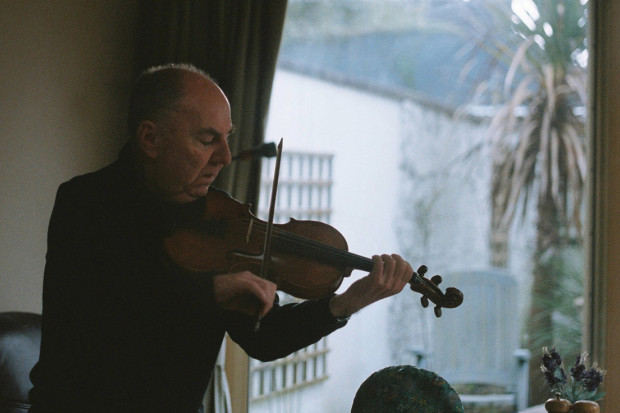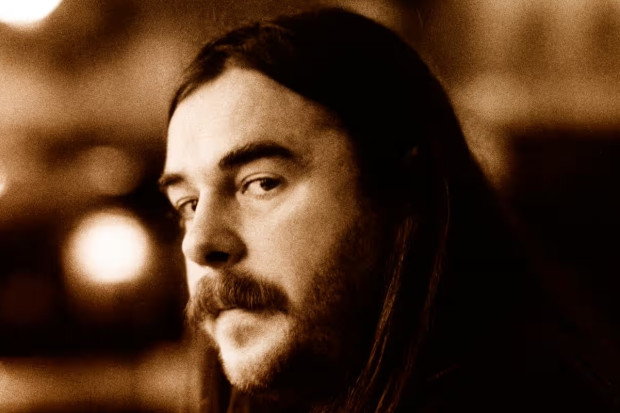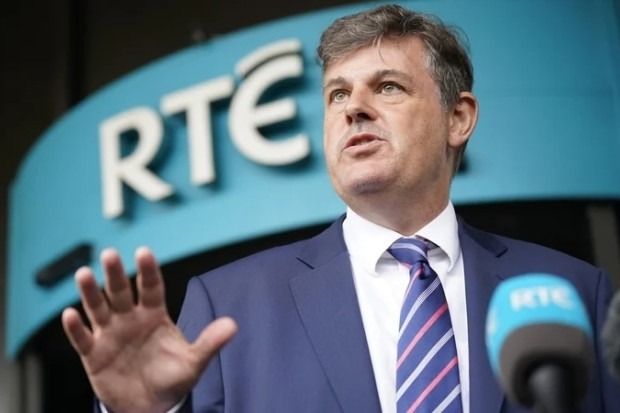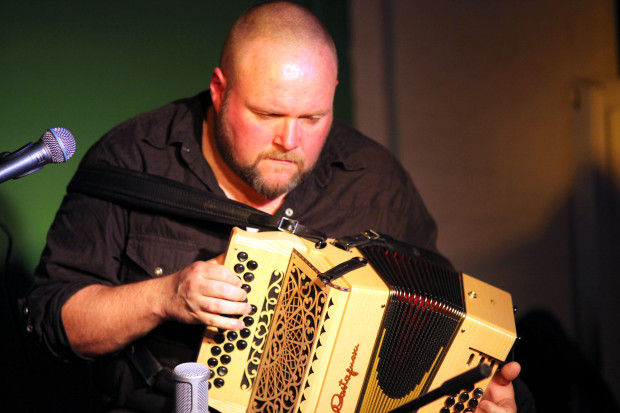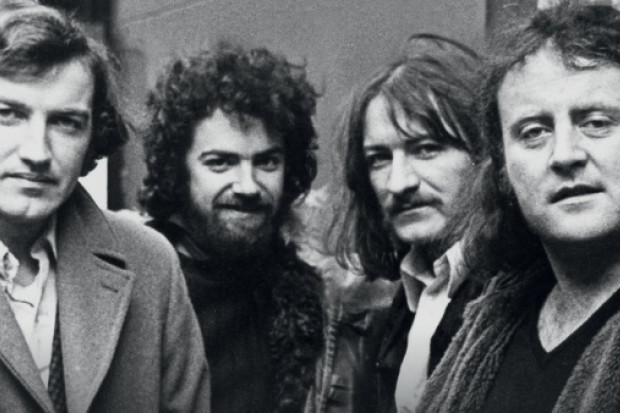Shane MacGowan’s Crusading Ideas on Irish Music
On 4 August 1991, at the famous Féile festival in Tipperary, I had never heard the Pogues live before. My friends and I had made the ‘Trip to Tipp’ to see the host of new British indie bands that had just swept the charts – The La’s, James, and the Wonder Stuff. It was a new sound that came with floppy hair, big shirts and moody dancing. We would fit right in.
To this seventeen-year-old, the Pogues were already past their pinnacle. It had been three years since ‘Fairytale of New York’. Hot Press had told us that their third album, If I Should Fall from Grace with God from 1988, was one of the best Irish albums of modern times, but it was just one of many: several Irish acts were releasing recordings at the end of the 1980s and early 90s that still stand up.
But when I think back to Féile, while the British bands came with their hits, the rest of their sets were a little thin, and it is actually the Pogues’ performance that I remember most. When they began on the final night, something shifted in the crowd.
A group of teenagers at the centre of the stadium was made up of mainly tired bodies sitting around, smoking and eating burgers. But in the twilight of the warm evening, the music took hold. The Pogues were not building up slowly to their hits. They began at a ferocious pace. By the second song, the teenagers were on their feet and attempting Irish dancing, hands by their sides, reeling across the muddy field and back again. Soon the entire centre of the field was a frantic ocean of heads, crashing into each other, wilder than the front of stage even. It spread throughout the stadium. Shane MacGowan was, at this stage, ‘ravaged by drugs and it was rendering him unable to perform’, according to Richard Balls’ 2021 biography of the singer, but he managed it just about, and if he looked out through his sunglasses that night, an hour from where he spent his formative years (he was Kent-born, but lived in Tipperary with family while his parents worked in England), it would have been clear to him that the Pogues had achieved their original vision, to bring their interpretation of Irish music to a new generation.
But that’s not a vision that is talked about much these days. One of the interesting aspects of the many tributes paid to MacGowan over the past week since he passed away was the almost complete emphasis on his songwriting. That was not actually the field of endeavour he set out to excel in.
‘To build Irish self-esteem, right?’
‘I never intended to write as many songs as I did. I didn’t want to be known as a songwriter,’ he said in the 2002 publication A Drink with Shane MacGowan. This book is a series of question-and-answer sessions between the artist and his wife Victoria Mary Clarke in which she probes him on a range of artistic, intellectual and personal questions. ‘The crusade was to make Irish music hip,’ he adds, ‘for … Irish music to make the language hip again. And the literature hip. In other words, to build Irish self-esteem, right? And for the whole world to know what an incredible wealth of culture we’ve contributed to the world, for such a small nation.’
These were no small ambitions, but what exactly was his idea of Irish music that would achieve this? To this son of Irish emigrants, Irish music was, firstly, what he experienced during his childhood in Tipperary – sing-songs at home and in the pub, hearing his uncle play tunes on the accordion. Secondly, he was influenced by the popular Irish music of the 70s, in particular Luke Kelly and the Dubliners, but also Foster and Allen, and as a teenager he was singing and playing Irish songs on guitar. By the late 1970s though, his obsession was with nihilistic ‘no future’ punk and the Sex Pistols (which included another child of Irish emigration, John Lydon) – MacGowan even created a fanzine for the genre called Bondage. Finally, he was not a fan of the smooth Irish music sound of the 1980s, including Moving Hearts and the ‘world music’ of the time, or British electro-pop acts such as Nik Kershaw and Howard Jones; he was actually viscerally against them.
In 1982, therefore, MacGowan helped establish a band of London musical drifters with the aim of creating a sound that brought all of these impulses together.
What came out the other side was something wild and acoustic that not only appealed to Irish emigrants but also to young Irish people at home. Its rawness gelled with the economic struggle of the 1980s, the hedonism of Irish pub culture, the tension over the North, and it busted up old notions of Ireland at the same time. For young Irish people of that era, it was a case of being close to Irishness but not too close. The young could find their roots in the music of the Pogues but also keep their antipathy towards the Irish political class that was forever letting them down.
That, it would seem, was MacGowan’s aim – his ‘crusade’ to find fidelity to Irishness and attack modern society’s political conservatism at the same time – but, fortuitously, the band also became a vehicle for his thoughtful ballad songwriting, which few could have predicted, certainly not based on the Pogues’ brilliantly raucous first album, Red Roses for Me in 1984. The fact that it was his songs, rather than the musical style of the Pogues, that were celebrated so much over the past week tells us something about the way our musical past is read. It’s much easier to understand the lyricism of ‘Fairytale of New York’ and ‘A Rainy Night in Soho’ than the ferocity of ‘Waxie’s Dargle’ or ‘Sally MacLennane’. But the two are equally important.
‘A terrible abortion of words’
There is a famous RTÉ radio programme from September 1985 presented by BP Fallon when the Pogues were joined by about 40 people in the audience to talk about the popularity of the band, ideas of Irish music and what it all meant. The concertina player Noel Hill – then in his twenties – was in the audience and contested MacGowan’s central premise, that what the Pogues were doing was playing Irish music. ‘This music,’ Hill said, ‘being labelled Irish music is a terrible abortion of words’. For Hill, their playing of the ‘Dingle Regatta’ was just poor playing of a traditional tune (which in a way it was), but of course that wasn’t the point.
MacGowan makes some astute points during the programme but the conversation veers off track and some of the band insist they are not claiming to play Irish music at all (which of course they were). It’s interesting to listen to all the cross-purposes and misunderstandings, with so many different concepts and ideas of what Irish music was. The conversation encapsulates how MacGowan and the Pogues’ musical vision had struck right at the heart of the cultural debates of the decade.
These kinds of debates persisted into the 1990s. Have we moved on since then? In a way, yes. The core tradition does not worry too much about what new bands do with the music today, simply because the practice of solo traditional playing and singing is so strong. And the newspapers are not as powerful as they were, so musicians don’t get as upset by them. It is also true, however, that this kind of extended and free discussion on Irish music is almost impossible to imagine on Irish radio today. The diversity of Irish music has now become a poster-boy for modern Ireland, but the ideas within it are rarely interrogated. As we saw with MacGowan and the Pogues, there is always a lot more going on under the surface than we imagine.
Just one month after Féile ‘91, MacGowan was sacked from the band during a tour of Japan. In A Drink with Shane MacGowan he explains that he was already entirely miserable in the band and couldn’t bear any more touring. That performance at Féile was to be one of his last, and, as Richard Balls pointed out in his biography, the Pogues would not play in Ireland again for another seventeen years.
But on that Féile evening, perhaps MacGowan and the Pogues’ musical crusade was already complete, whether we realised it or not. They left us with a radical example of how Irish music can reflect our society, and the extraordinary artists, such as MacGowan, that it can produce.
Subscribe to our newsletter.
Published on 5 December 2023
Toner Quinn is Editor of the Journal of Music. His new book, What Ireland Can Teach the World About Music, is available here. Toner will be giving a lecture exploring some of the ideas in the book on Saturday 11 May 2024 at 3pm at Farmleigh House in Dublin. For booking, visit https://bit.ly/3x2yCL8.










